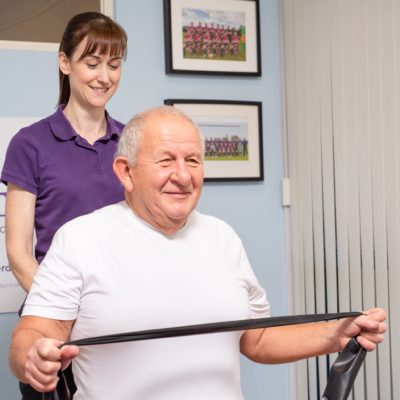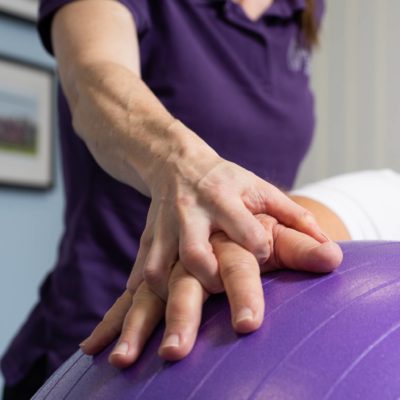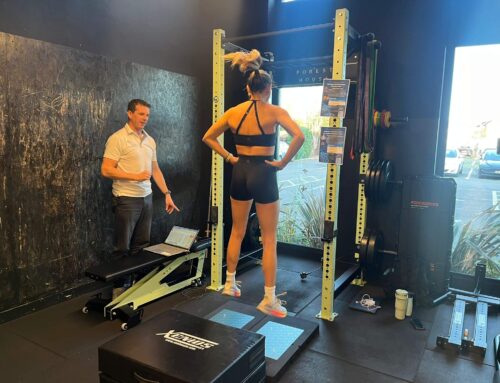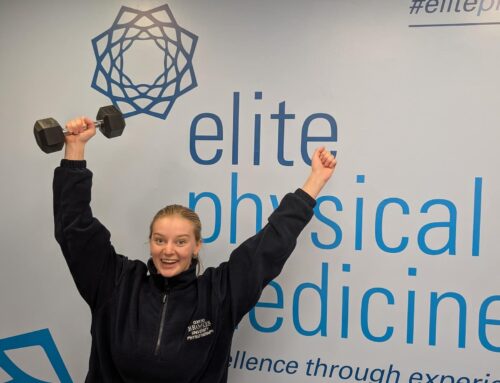Karen Blagojevic is a neurological physiotherapist.
This highly specialist area seeks to help patients improve and regain previous levels of function after an injury or disease has affected their central nervous system.
Physiotherapists train broadly, so that we are equipped to assess and treat a wide range of issues. Elite’s team members each have their specialist areas, having gained additional qualifications and expertise over and above the average physio. When it comes to the treatment of neurological conditions, we’re extremely lucky to have Karen in our corner.
Karen’s postgraduate training included the management of incomplete spinal cord injury and management of the upper limb. She’s also trained as in instructor in the Bobath Concept – a pioneering approach which centres around the fact that our nervous system can adapt and change.
As one of only 10 Bobath Concept Instructors in the UK, Karen can train other neuro physios in this approach, as part of a worldwide training organisation (IBITA).
Karen sees patients who’ve experienced a stroke, have conditions such as Parkinson’s disease or multiple sclerosis, or lesser-known hereditary conditions. She also treats patients who have suffered an incomplete spinal cord injury, where there is likelihood that the body can change and allow the person to recover some function.
Karen says:
“Neurological problems are common, but people often don’t know that anything can be done. There’s a misconception that once the damage has occurred, that’s it.
But it’s possible to improve, or even recover from the impact of a neurological condition. You don’t just have to make do with what you have left.”
Patients sometimes visit Elite for a musculoskeletal problem and are referred to Karen by one of her colleagues. If one of our clinicians suspects an issue with the central nervous system is affecting the patient’s movement patterns, they will refer the patient to Karen, as our neuro expert.

Karen explains:
“Sometimes muscle strain, joint problems and pain are caused by the body not moving efficiently. This can happen when the brain sends different signals, which can be noticed in the way someone walks or performs certain tasks.
The team at Elite will often suggest that a patient comes to see me for a neurological assessment. I can look at the person holistically to determine whether the instruction to move is the problem, rather than the moving parts themselves”.
Many of Karen’s patients come to her for rehabilitation after receiving a diagnosis from a neurologist. For those not yet diagnosed, Karen uses specialist movement analysis to gather evidence about which part of the brain or central nervous system may be causing the problem. The patient can then be signposted to further investigations or commence a treatment programme at Elite right away.

During the pandemic, Karen was able to continue treating people at home. Despite the challenging circumstances, she has some incredible stories about the progress of her patients during that time.
Karen recalls:
“I treated a lady who’d had a devastating stroke, aged just 50, who was discharged from hospital in March 2020. I had the privilege of seeing her quite intensively at home, because myself and her Occupational Therapist were the only services she could receive.
She went from being hoisted, to walking independently, and after a two year journey, she’s just started supporting children with their reading at a local school.”
Another valuable skill that Karen uses to aid rehab and recovery is Pilates. As a qualified instructor, she supports patients to improve movement efficiency, optimise muscle activity and reduce pain by working on their alignment.

Karen says:
“Pilates is an easy-to-access, recreational way of gaining better body awareness. It teaches you about posture and how to control movement in a slow and productive way. Training your postural stability muscles gives you access to better and more efficient movement of your limbs.
Pilates can really help the transition from clinical sessions, into a lifelong recreational activity. Where patients have regained some of the function they’d lost, Pilates helps them to maintain those movements.”
Despite her abilities to bring about amazing positive change, Karen is very approachable, laid back and humble about the work she does.
Elite’s Clinical Director, Andy McCrea, said:
“We’re hugely fortunate to have Karen as part of our multidisciplinary team. Karen is just one example of the fantastic impact that a particular branch of physiotherapy can have on people’s lives. Her specialist expertise is truly impressive.”



